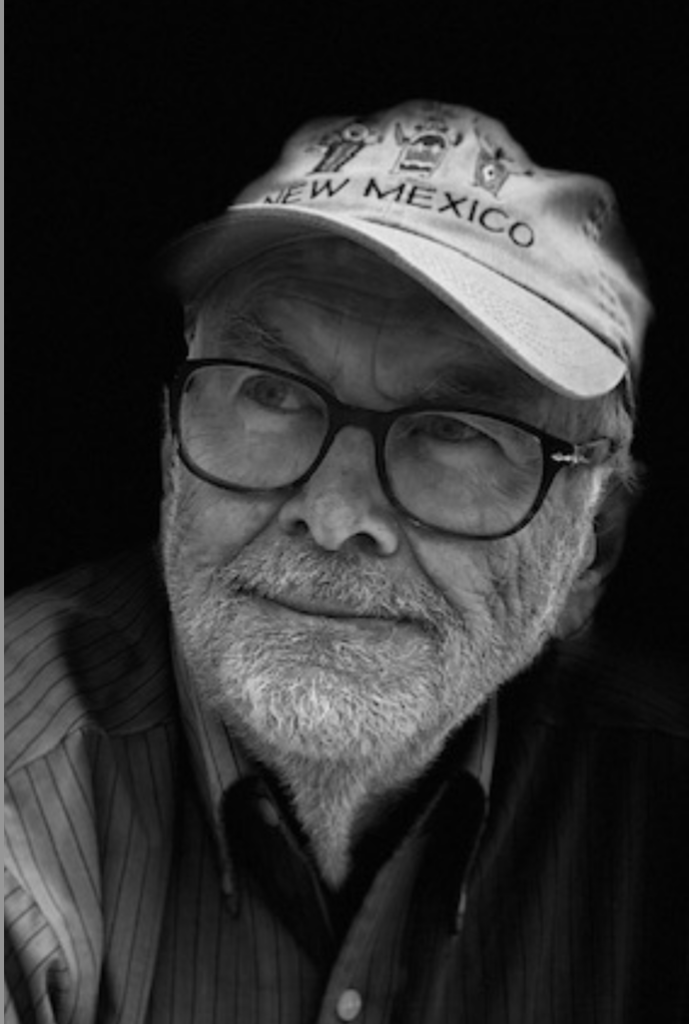Aaron Epstein, longtime Club member, renowned Supreme Court reporter
Aaron Bernard Epstein, a newspaper journalist and longtime National Press Club member who with vigorous skepticism and uncommon zeal pursued truth, impactful reporting, clear writing, and the dubious claims of the powerful, died March 11 of debilitating side-effects from immunotherapy. He was 93.
During the 1980s and 1990’s, Epstein humanized decisions of the U.S. Supreme Court, covered legal affairs and the Justice Department, and tackled many other national stories for millions of readers of Knight Ridder, then the second largest newspaper publisher in the U.S.
In 1996, he won the American Bar Association’s Silver Gavel award for his approach to Supreme Court reporting. He collaborated on a book, “A Year in the Life of the Supreme Court,” which offered rare glimpses of the court’s inner workings and the human consequences from its rulings.
His journalism garnered national recognition. He was part of teams at the Philadelphia Inquirer that won the 1980 Pulitzer Prize for coverage of the Three Mile Island nuclear accident, and at Knight Ridder that won a 1988 Polk Award for coverage of the Iran-Contra affair.

Club members who played on the Club's co-ed softball team in the 1990s recall Epstein's considerable contributions as pitcher. Former Club President Jonathan Salant, who founded the team and co-founded the Metropolitan Media Softball League in which it competes, said he recalled hoping that he could still be playing on the diamond when he reached age 65, as Epstein was doing at that time.
Baseball was important to Epstein. He played stickball on the streets of Brooklyn, watched the Dodgers at Ebbits Field, played softball whenever he could and for as long as he could, and was a die-hard fan of the Nationals. He and his former Knight-Ridder colleague and former Club President Dave Hess went to many games together.
After retirement in 1999, he coached fifth graders at Murch Elementary School in Northwest Washington in critical thinking and running a newspaper, hoping to plant seeds for a future of more informed. As he had done in professional newsrooms, Epstein evangelized about the imperatives of concise writing on relevant topics.
He never accepted pronouncements or appearances at face value. To the chagrin of some parents perhaps, Epstein would frequently remind the 11-year-olds in his charge of a journalism aphorism: “Your mother says she loves you? Check it out.”
He lunched regularly with his law professor from the 1960s, Anthony Kennedy. When Epstein retired in 1999, Kennedy said he’d miss seeing him in the court’s press gallery. He praised Epstein’s “precision” in reporting and his “humored perspective on life and the law.”
A tough independent journalist with a hunger for investigation, Epstein also acquired a reputation for impactful activism within newsrooms. He helped transform two newspapers from servants of publishers and advertisers into stewards of the public interest.
As city editor of The Sacramento Bee during the late 1960s and early 1970s, and City Hall bureau chief of The Philadelphia Inquirer from 1972 to 1980, he was on the frontlines of uncovering significant stories while radically altering what those news organizations considered important.
At The Inquirer, Epstein and his team broke some of the paper’s most significant stories on civil rights and police abuses and political corruption. “The Inquirer under [previous owner] Walter Annenberg had been one of the worst, most biased newspapers in America and had boosted [Philadelphia Mayor Frank] Rizzo's career,” recalls Mike Leary, who was a reporter at the transformative time. “Aaron’s reporting and leadership after Knight Newspapers [acquired the paper] helped completely reverse that reputation and The Inquirer became known as one of the best papers in the country.”
Rizzo regularly and publicly would confront Epstein and the Inquirer for its hard-hitting reporting. “Aaron was a great man and a courageous journalist who influenced all of us at the City Hall bureau in the era of Frank Rizzo, who was in some ways a precursor to Trump,” says Leary.
Rizzo would try to charm, co-opt, and hire members of the press. “Knowing that Aaron was a lawyer, he had dangled a post of legal adviser, possibly city solicitor,” Leary remembers. “But after tough reporting on Rizzo’s tenure, the job offers became less attractive, finally devolving to a gang worker in North Philadelphia.”
He is survived by his wife of 73 years, Jackie, his daughter, Esther Epstein, son Keith Epstein (Kim Bowley), granddaughters Serena Epstein (Erin Buehler) and Liana (Joey) Scarim.
A celebration of life is being planned at the Club for May 10.
More here: https://lnkd.in/eGxRGfVs.
